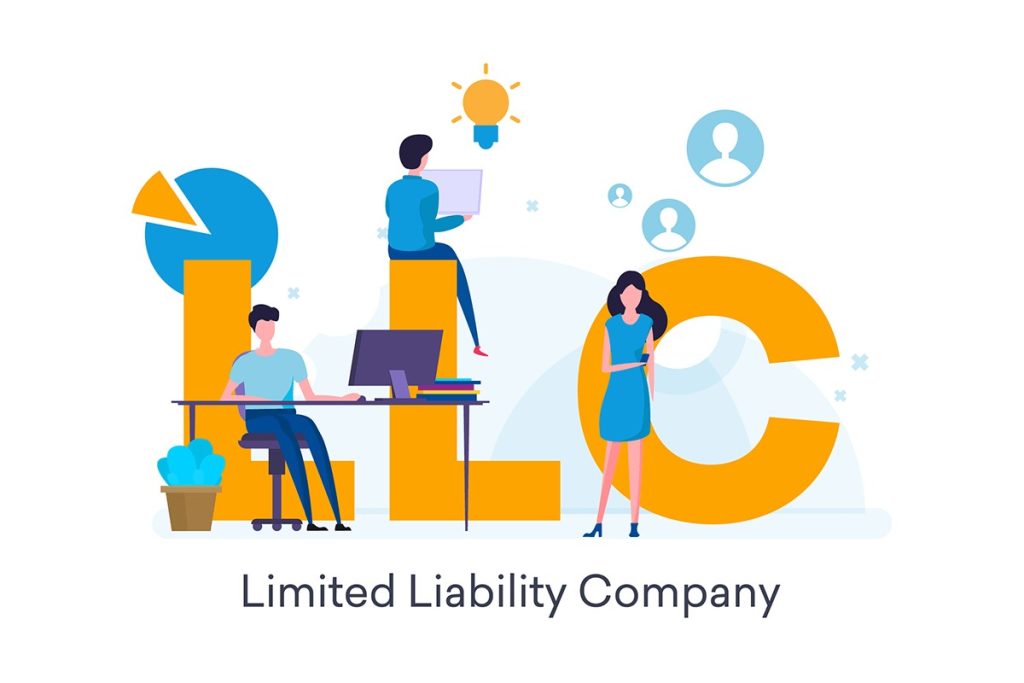In the diverse world of business structures, the Limited Liability Company (LLC) stands out for its versatility and protection. Ideal for small to medium-sized businesses, an LLC combines the operational flexibility of a partnership with the liability protection of a corporation. Let’s get into why forming an LLC might be the most prudent decision for entrepreneurs looking to safeguard their personal assets while enjoying flexible business operations.
What is a Limited Liability Company (LLC)?
A Limited Liability Company (LLC) is a US business structure that provides its owners, also known as members, with limited liability protection. It also allows the profits and losses of the business to pass through to their personal income without facing corporate taxes. This hybrid structure is increasingly popular among business owners. This is due to its ability to combine the best aspects of partnerships as well as corporations.
Key Characteristics of an LLC
The main attraction of an LLC is the limited liability protection it offers. Members receive protection from personal liability for business debts and claims. This is a protection that goes beyond what a sole proprietorship or partnership can offer. This means that in the case of debt or litigation, the personal assets of the members are typically beyond the reach of creditors and lawsuits.
Benefits of Forming a Limited Liability Company (LLC)
Choosing to establish a Limited Liability Company (LLC) can provide several strategic advantages, crucial for both new and also evolving businesses.
Liability Protection
Members of an LLC enjoy limited personal liability for business debts as well as actions of the LLC. This protection is similar to that of a corporation but without the rigidity and also extensive record-keeping requirements.
Tax Flexibility
An LLC offers significant flexibility in taxation. By default, tax authorities treat LLCs as pass-through entities, meaning they do not tax the business directly. Instead, profits are distributed to members who then report the income on their personal tax returns. Additionally, an LLC can elect to be taxed as a corporation if it benefits the business.
Operational Flexibility
An LLC allows for fewer formalities as well as greater management flexibility compared to a corporation. There are no requirements for annual meetings or a board of directors. The members can also manage the business directly, or they can choose to appoint managers.
Profit Distribution
LLCs offer flexibility in how profits are distributed among members. Unlike corporations, where profits must be distributed in proportion to the number of shares held by shareholders, an LLC can distribute profits in any manner agreed upon by the members, without regard to the amount each member has invested in the company.
Challenges of a Limited Liability Company (LLC)
While the benefits are substantial, there are challenges associated with managing a Limited Liability Company (LLC) that should be considered.
Complexity in Formation and Compliance
Although less complex than a corporation, setting up an LLC still involves several steps, including filing articles of organization with the state, creating an operating agreement, and paying initial filing fees. The process varies by state, which can be a source of confusion.
Potential Self-Employment Taxes
Members of an LLC may be subject to self-employment taxes on their share of the business’s profits. This tax covers Social Security and Medicare taxes and can be higher than what corporate shareholders pay.
Varied State Laws
LLC regulations can vary significantly from one state to another, affecting everything from setup fees to the details of operational compliance. Business owners must understand the specific requirements and implications of their state’s LLC regulations.
Is a Limited Liability Company (LLC) Right for You?
Deciding whether to form an LLC involves weighing several factors specific to your business needs and goals.
Evaluate Business Risks
Consider the level of liability protection needed based on your business activities. Businesses with higher risks, such as those involving large capital investments or industries prone to lawsuits, often benefit more from the LLC structure.
Assess Tax Implications
Understanding the tax implications for an LLC in your state and how they align with your financial goals is critical. Consulting with a tax advisor can provide clarity on how forming an LLC will affect your tax situation.
Consider Growth and Funding Needs
If you anticipate needing outside funding, or plan to rapidly expand, the LLC’s ability to accommodate different types of members and investors can be beneficial.
Harnessing the Power of a Limited Liability Company (LLC)
A Limited Liability Company (LLC) provides an optimal blend of liability protection, tax efficiency, and operational flexibility, making it an attractive option for many entrepreneurs. By carefully considering the advantages and challenges of an LLC, business owners can make an informed decision that aligns with their strategic objectives and personal needs, ultimately enhancing their business’ potential for success and longevity.


